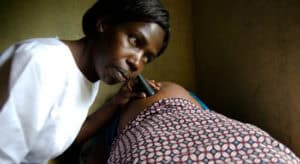
For this symposium we have invited a panel that works with sexual and reproductive health and rights in rural populations. Join the discussion when each panelist present their case and help us find the best sexual and reproductive health solutions for rural populations.
What does a woman do when she is heavily haemorrhaging after a complicated birth and her village is six hours away from the nearest health clinic? What does a woman do when going into labour but being uncertain whether the nearest health clinic is open or not, staffed or not or if she will be forced to pay for their services even though health services ought to be free? What does a fourteen-year-old girl do to get access to birth control and not to mention the knowledge on how to use it? What does a new-born baby do when its mother is working in the field all day long and the only source of nutrition in her absence is water?
These examples are just a few of the many dilemmas that take place every day in poor countries among rural populations. At the ground-breaking International Conference on Population and Development (ICPD) in Cairo 25 years ago, sexual and reproductive health and rights were placed at the top of the international development agenda. Yet the examples pay evidence to the unfinished business in reaching the goals of the ICPD. This November, Denmark, Kenya and UNFPA co-hosts the The Nairobi Summit (12-14 November 2019) which will focus on accelerating the promise of ICPD to make rights and choices a reality for all.
Major challenges remain in ensuring access to sexual and reproductive health services and too often health interventions focus on the population as a homogeneous group. This means that the last – and most vulnerable – 10% of the population is being excluded because they are the hardest to reach. We call this population ‘The Last Mile.’
The Last Mile is a varied group. They often live far away from health clinics and the established system. Here, the level of education is low and knowledge about health is characterised by traditions and myths. Furthermore, extreme poverty govern peoples everyday lives.
Purpose of symposium
For this symposium we have invited a panel that works with reaching The Last Mile, each in their own way and from different perspectives. They each think that they have found the right solution but which one is the best? Mobile health clinics? Health apps? Capacity building? Community mobilisation? Human rights approaches? Bicycles or tuk tuks for solving transportation problems? Or is it all a matter of financial aid?
The purpose of this symposium is to gather experts and future actors within development work and to create a professional discussion about the interventions that are made in the field, their strengths and weaknesses and how we all can get better at reaching The Last Mile.
We wish to focus the discussion on how reducing inequality (UN’s Sustainable Development Goal number 10) is a mean to achieve better health. Especially reducing gender inequality and the empowerment of women will be the topic of the discussion
Join the discussion when each panelist present their case and help us find the best sexual and reproductive health solutions for rural populations.
Network café with dinner and drinks
After the symposium everyone is invited to continue the discussion with the panelists and other participants at our network café. A vegetarian dinner is served and drinks are offered at affordable prices.
Do you want to exhibit material or present your organisation at the network café?
If you are working with sexual and reproductive health and would like to showcase your work or your organisation, you are more than welcome to hang a poster or put up a small stand at the network café. To do so, please get incontact with Emma Hôlmich from IMCC Global on emmaholmich @ gmail.com
Follow the Facebook event or this page, as we continuously announce the panelists and update the program.
Please register here
NB: The event is in English.